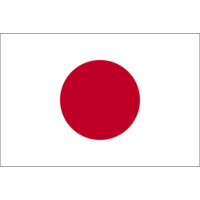Fresh momentum is building in Japanese equities as market conditions realign with investor hopes. The Nikkei 225’s latest rally taps into currency shifts and falling bond yields, with specific sectors emerging as major beneficiaries of this tailwind.
Japan’s Nikkei 225 closed higher, up 0.58% to 37,724.11, as investors found renewed confidence in a weaker yen and a sharp fall in long-dated bond yields. This dual dynamic, often a catalyst for stock market gains, reenergised interest across real estate, banking, and textiles, all of which recorded strong upward movement. A softer yen, in particular, offers a strategic edge to Japanese exporters, amplifying global competitiveness at a crucial time.
The bond market delivered another layer of support. Yields on super long-term Japanese government bonds plunged, signalling intensified demand and improved investor sentiment towards fixed-income assets. With borrowing costs now more favourable and inflation fears partially muted, equity markets have become increasingly attractive, especially to those seeking yield in an otherwise cautious environment.
Within the Nikkei 225, several standout performers captured market attention. Kawasaki Heavy Industries saw a surge of 4.61%, supported by confidence in the industrial and heavy machinery segment. TDK Corporation gained 3.12%, reinforcing the upbeat outlook for electronics and component manufacturers, while Furukawa Electric Co., Ltd. climbed 3.03%, reflecting broader optimism in infrastructure-related tech.
Not all stocks moved in lockstep, however. A few underperformers emerged, with Rakuten Inc. falling 2.27%, Ricoh Co., Ltd. down 2.20%, and Sumitomo Dainippon Pharma dipping 2.15%. Nonetheless, the broader tone was resoundingly positive. On the Tokyo Stock Exchange, advancing stocks outpaced decliners by more than two to one, underscoring the strength of bullish sentiment.
Strategic commentary from Bank of Japan Governor Kazuo Ueda added further intrigue. His remarks on the potential for future interest rate hikes, driven by rising inflationary pressure, particularly in food – are being closely watched. However, the central bank’s measured approach suggests any policy shifts will be gradual, ensuring financial conditions remain supportive of economic growth in the near term.
For investors, the current environment in Japan is compelling. The convergence of a declining yen, dovish central bank stance, and increased appetite for equities creates a landscape ripe with opportunity. Specific sectors that benefit from currency sensitivity and improved liquidity conditions are likely to continue attracting capital, particularly from global investors seeking diversification away from the US and Europe.
The Nikkei’s latest upswing isn’t just about today’s gains. It reflects a broader recalibration in Japan’s financial markets, where structural improvements and cyclical drivers are now aligning. For those watching Asia’s second-largest economy, the signals are becoming clearer – Japan is back in the spotlight, and its market story is far from finished.
The Nikkei 225 is Japan’s flagship stock market index, tracking the performance of 225 leading companies across sectors. It is widely viewed as a barometer of the Japanese economy and investor sentiment in the region.
Fidelity Japan Trust PLC (LON:FJV) aims to be the primary investment choice for those seeking exposure to Japanese companies. The Trust employs a ‘growth at a reasonable price’ (GARP) investment style and approach, which involves identifying companies whose growth prospects are being undervalued or are not fully acknowledged by other investors.






































